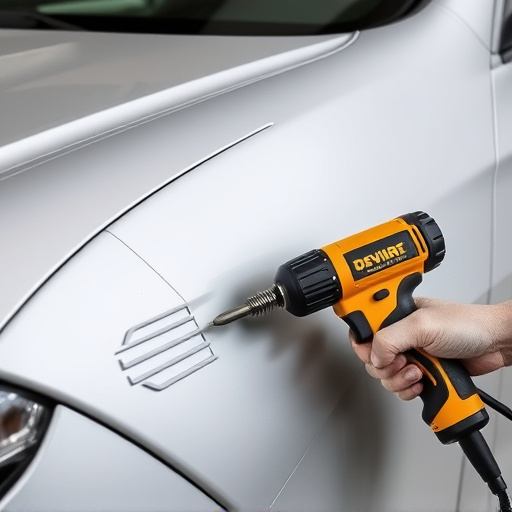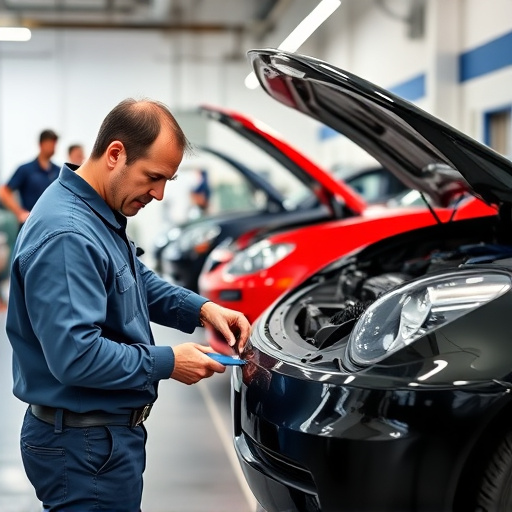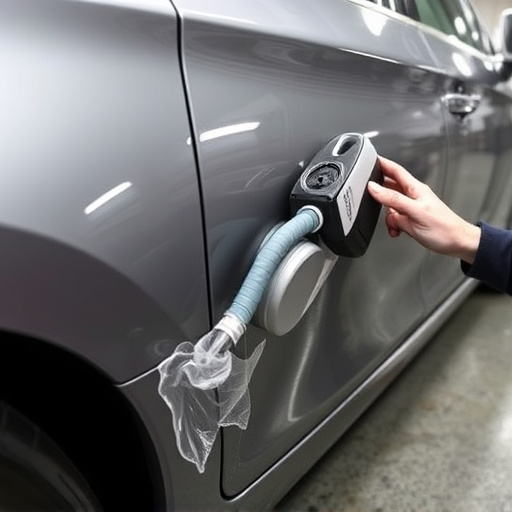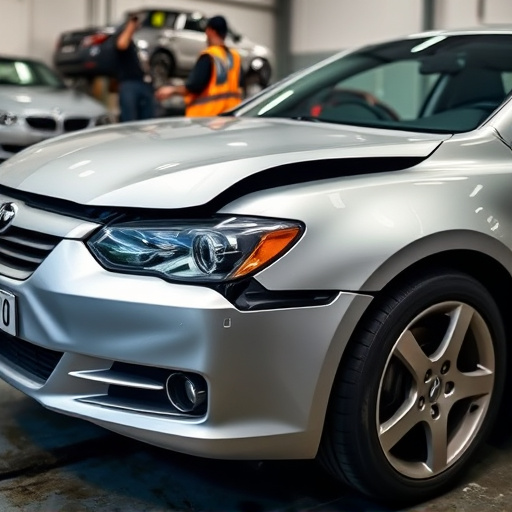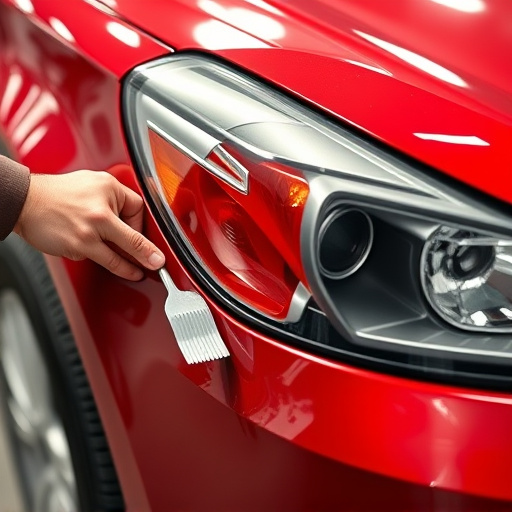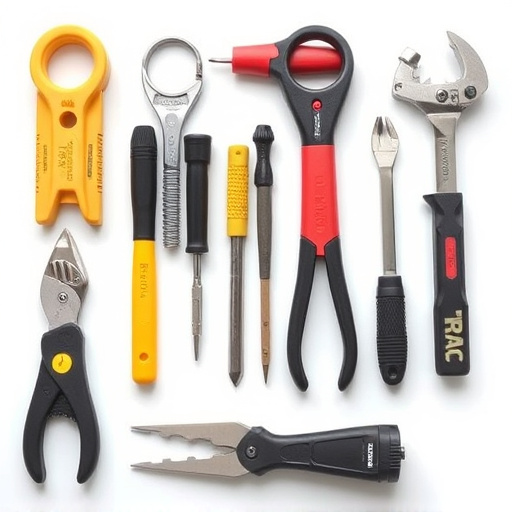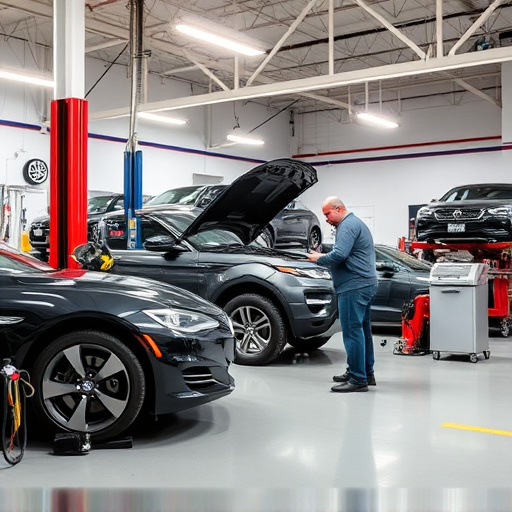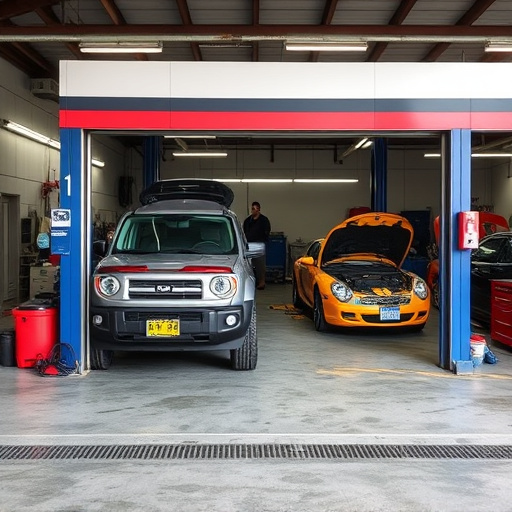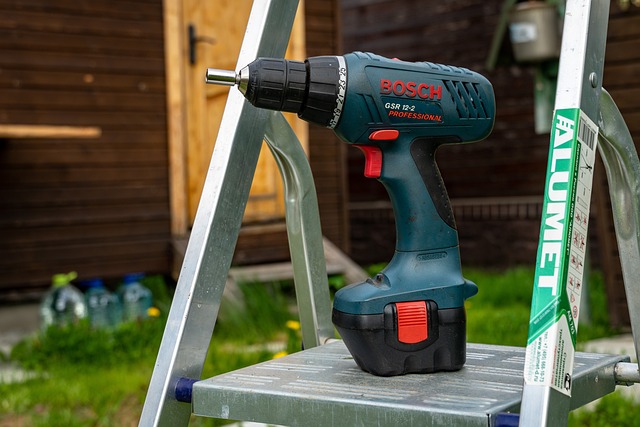The automotive industry's rapid evolution with advanced safety features and complex vehicle technologies requires a review of auto body insurance policies to ensure adequate coverage for specialized repairs like electronics recalibration and autonomous system adjustments. Traditional policies may not cater to the diverse range of vehicle makes, models, and emerging challenges posed by luxury vehicles and advancements in electric vehicles (EVs) and driver-assistance systems (ADAS). Policy reviews are essential to keep pace with these innovations, offering comprehensive support for modern car repairs and maintaining safety standards.
As vehicle technology rapidly evolves, newer models come equipped with advanced safety features like autonomous emergency braking and adaptive cruise control. These innovations necessitate a closer look at existing auto body insurance policies. This article explores why policy reviews are crucial in keeping pace with rapid technological advancements. We delve into specific areas such as comprehensive coverage adjustments to accommodate new safety standards and the importance of regular policy evaluations to ensure adequate protection for modern vehicles.
- Evolving Vehicle Technology Demands Adaptive Policies
- Comprehensive Coverage: Adapting to New Safety Features
- Policy Reviews: Keeping Pace with Rapid Innovation
Evolving Vehicle Technology Demands Adaptive Policies
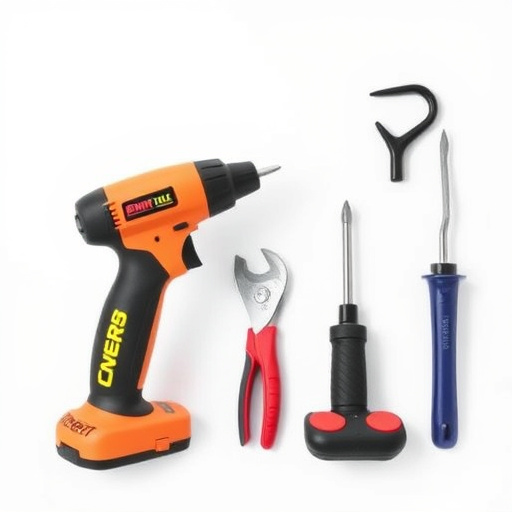
The automotive industry is experiencing a rapid evolution, with newer vehicles incorporating advanced technologies and innovative safety features. From autonomous driving systems to sophisticated infotainment packages, modern cars are far more complex than their predecessors. This evolution demands a corresponding adaptation in the policies that govern them, particularly when it comes to auto body insurance coverage. As vehicles become more intricate, so do the potential risks and repair requirements, necessitating detailed reviews of existing policies.
For instance, while traditional vehicle repairs might have focused on engine mechanics or basic cosmetic work, today’s cars may require specialized services such as advanced electronics repair, autonomous system calibration, or even replacement of complex computer modules. This shift requires insurance providers to reevaluate their policies, ensuring they offer adequate coverage for these emerging areas. Furthermore, considering the increased prevalence of imported luxury vehicles, like Mercedes-Benz repairs, insurers must be prepared to handle a more diverse range of vehicle makes and models, each with its unique set of maintenance and repair needs.
Comprehensive Coverage: Adapting to New Safety Features
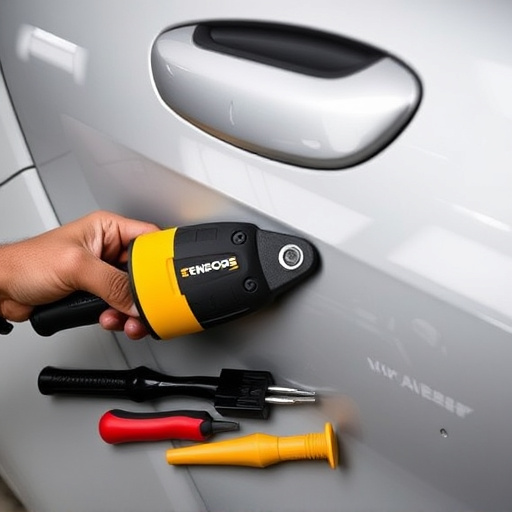
In today’s rapidly evolving automotive landscape, newer vehicles are equipped with advanced safety features designed to prevent accidents and protect occupants. Comprehensive auto body insurance coverage needs to adapt to this new reality. Policies must account for a wider range of potential damage, from sophisticated airbag systems to advanced driver-assistance technologies (ADAS). As these features become standard across various models, insurers need to ensure their policies can adequately cover the unique challenges they present.
For instance, while fender repairs might have once been the extent of auto collision center claims, modern vehicles may require intricate computer system recalibration after a collision. This is due to ADAS sensors and cameras that must be precisely aligned for optimal performance. Insurers must consider these emerging needs, ensuring their policies offer comprehensive coverage that includes both traditional vehicle repair and advanced systems recalibration. This proactive approach will help maintain the safety and effectiveness of newer vehicles post-accident.
Policy Reviews: Keeping Pace with Rapid Innovation
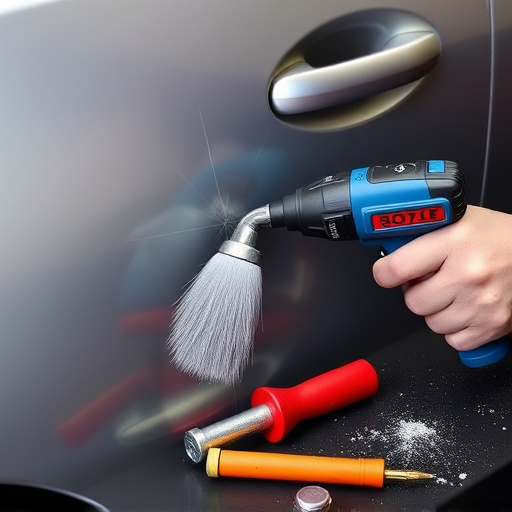
The auto industry is undergoing a rapid transformation with new technologies and innovations emerging at an unprecedented pace. As vehicles become more advanced, electric, and connected, traditional auto body insurance coverage policies may not adequately address the unique challenges that arise from these changes. Policy reviews are essential to keeping up with this rapid innovation, ensuring that coverage aligns with current technological advancements and safety standards.
For instance, modern cars equipped with advanced driver-assistance systems (ADAS) or autonomous features require specific policy adjustments. These technologies can impact liability in the event of an accident, as well as the scope of repairs. Traditional policies might not cover the replacement or repair of ADAS components, emphasizing the need for detailed reviews to include automotive repair services for these sophisticated systems. Similarly, with the rise in electric vehicles (EVs), policy makers must consider how to handle battery damage and related repairs, which differ significantly from conventional car collision repair processes.
As vehicle technology continues to evolve at a rapid pace, it’s crucial for policy reviews to keep up. The sections on evolving vehicle technology, comprehensive coverage, and policy reviews highlight the need for adaptive policies that address new safety features. Ensuring adequate auto body insurance coverage is essential in light of these advancements, allowing drivers to benefit from innovative technologies while maintaining financial protection. By regularly reviewing and updating policies, we can navigate the complex landscape of modern vehicles and their unique challenges.
